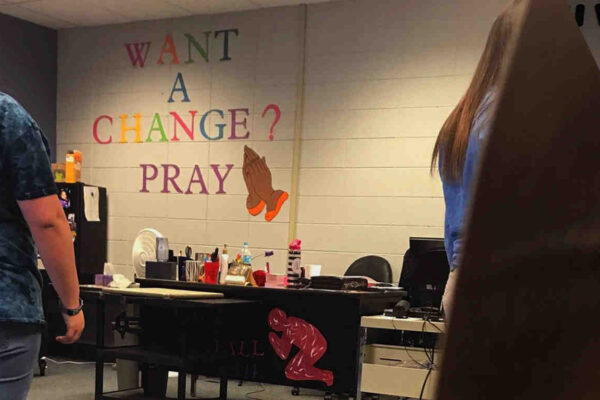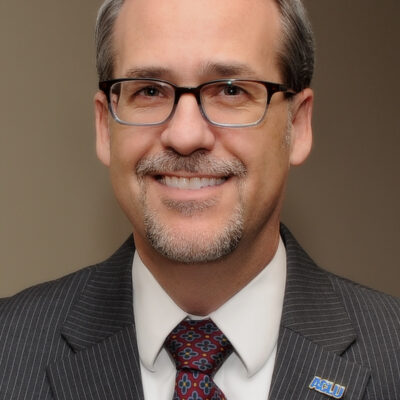I was driving in Webster Parish this past December when I saw a roadside sign that said: “ACLU is the grinch that stole Christmas from Webster Schools.”
I didn’t know whether to laugh or sigh. I assume the sign was posted as a joke in response to a lawsuit the ACLU filed, on behalf of a mother and her daughter, against the Webster Parish School Board.
In response to the lawsuit, students have also launched efforts like the “Protect Prayer” campaign. We agree! Students’ right to pray in school should be protected. Despite what some are saying, we don’t hate Christmas or religion, and we’re not trying to take prayer out of schools.
We support students’ rights to express and exercise their faith in public schools. These rights include, among others, the ability to pray individually or in groups or to discuss their religious views with their peers so long as they are not disruptive, as well as the right to express their religious beliefs in reports, homework and artwork where those beliefs are germane to the assignment. We’ve defended students’ rights to distribute religious literature to their schoolmates, and to wear clothing with religious messages.
What we don’t support, and what the Constitution forbids, is allowing government officials, including public-school staff, to impose prayer on students, or to otherwise use their access to students to promote their personal religious beliefs.
The freedom to believe — or to not believe — in a particular faith is protected by the First Amendment, and for good reason. It includes the right to express our faith, but also the right to be free from government pressure and favoritism when it comes to religion.
No one wants the government deciding what religion we can practice or telling us what religion we can teach our kids. And in public schools, which serve all students regardless of their religious beliefs, when school officials openly favor one religion or religion generally, it not only pressures students to adopt the school’s preferred faith, but it also sends a message that those students who do not share these religious beliefs are unwelcome and outsiders.
When students, of their own volition, decide to read the Bible or recite scripture during free time at school or during meetings of religious clubs, say grace before meals, seek religious guidance before tests, or join together in prayer at recess, they are participating in constitutionally protected religious exercise. But when school officials become involved with those activities, a line is crossed.
School officials must remain neutral when it comes to faith — not because they are hostile to religion, but because they must allow students and families the space to decide for themselves which religion, if any, to follow. Public schools are required to provide an environment that is welcoming and inclusive for all students, and they cannot do that if they are taking sides on matters of faith.
That is why public-school educators can’t require or even encourage students to pray. They can’t impose prayers on the entire student body, for example, by allowing students to recite prayers over the public-address system during morning announcements, school assemblies or athletic events, as Webster Parish has done for years. Nor may school staff take part in prayers with students or endorse religious beliefs by teaching creationism, posting Bible verses in classrooms, or delivering other religious messages to students.
Schools are not religion-free zones, and they shouldn’t be. But the best way to protect prayer and students’ religious-freedom rights is for school officials to butt out.
Webster Parish and other school districts, such as Bossier Parish, have not been living up to their obligations under the First Amendment. We sued in Webster Parish to restore all students’ rights to a learning environment that is free of religious coercion or favoritism. Only when that is achieved will students’ religious freedom be fully protected.
This article originally appeared in the Shreveport Times.


